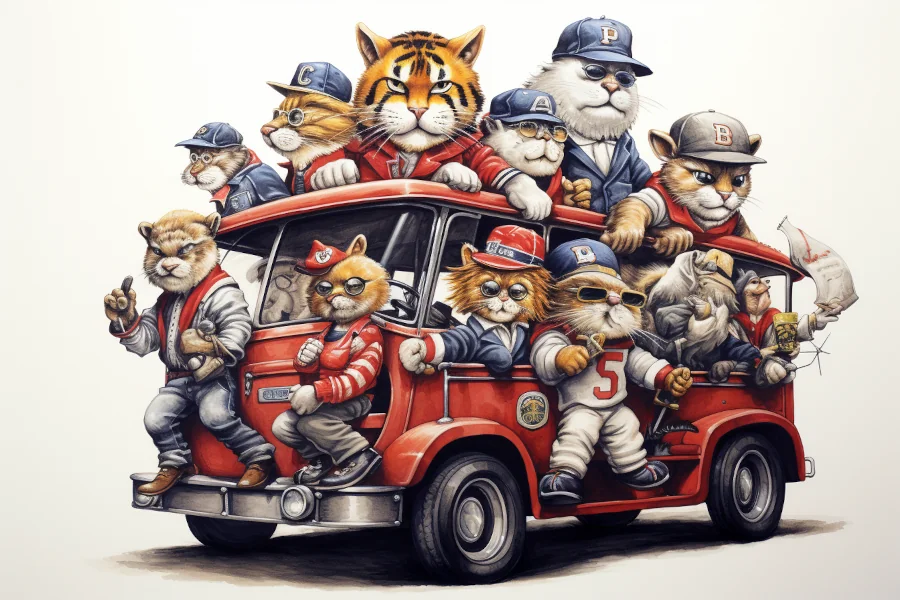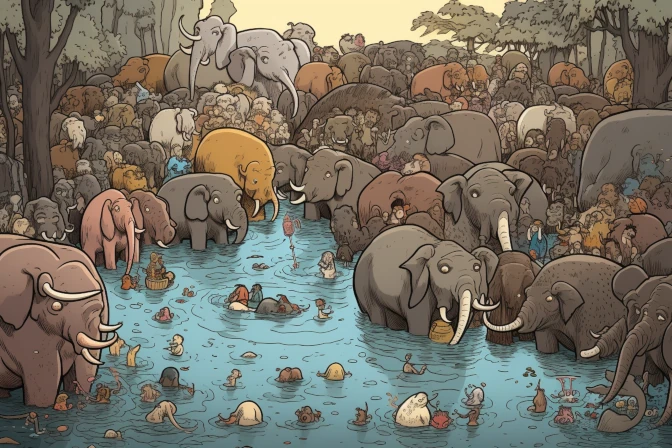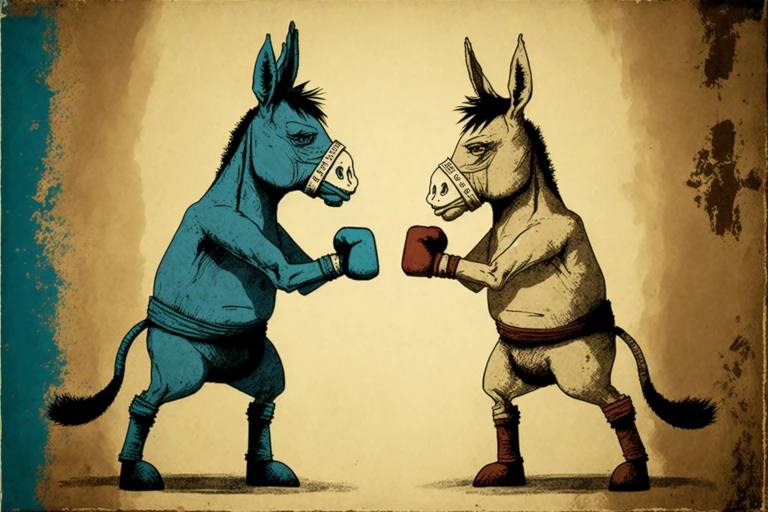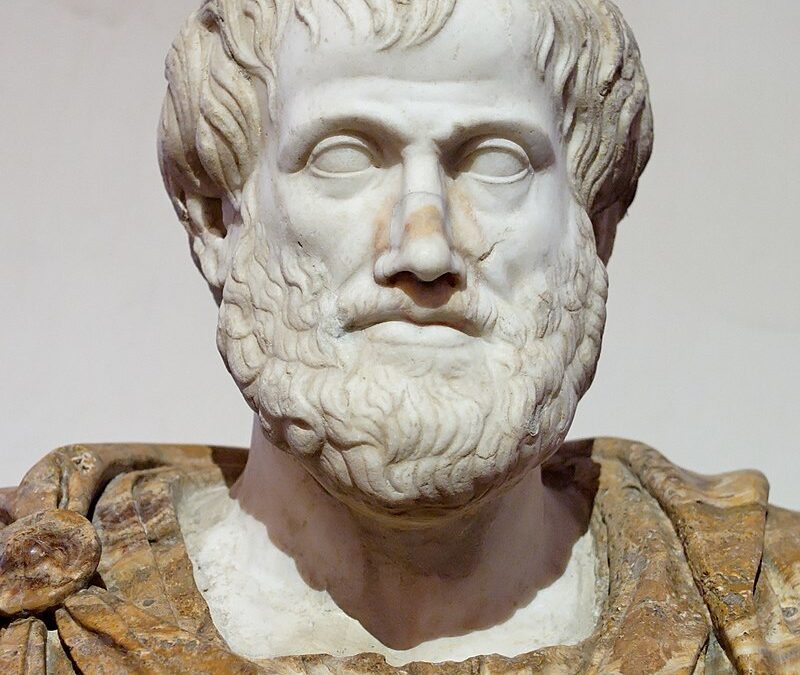This is a paper I wrote as an undergrad about Anne Brontë’s The Tenant of Wildfell Hall (affiliate link). Looking back, it’s a thoroughly ridiculous paper. Although accepted in the academic genre, it’s impossible to follow unless you’re familiar with the book. It’s also argues a point about the book that is utterly inconsequential to any to any major interpretation of the story. Maybe I had something in mind and I never articulated it, but if that’s true it’s just even worse. This paper could be used as a prime example of the things other disciplines mock the humanities for. It’s pretty much about nothing but it nails all the major requirements of papers in this genre, which is why it received an ‘A.’
This is the type of technically proficient yet vapid paper that will propel one to success as an undergrad. In grad school, things were turned on their head. We always had to justify the importance of our work. This opposite extreme led to the opposite problem: every student had to pretend like their interpretation of some novel or poem or whatever would somehow save the world from the horrors of bigotry or provide an ethical framework that will save humanity from destruction (this was the missing component from my first 15+ thesis ideas my advisor rejected). Personally, I’ve come to view good writing as a happy medium between these places—to provide insight into the subject is all that is necessary. This paper takes note of an interesting detail of Brontë’s novel, but it fails to provide any explanation of why this interesting detail ought to shape one’s interpretation of the novel as a whole.
If you’re a Brontë fan you may find this interesting. Otherwise, it’s most interesting as a humorous example of what is considered success as an undergraduate humanities essay.
Anne Brontë’s heroine from The Tenant of Wildfell Hall, Helen, is not an artist. While it is undeniably true that she’s an artist in the most literal sense of the word, as she’s “a person who creates paintings or drawings as a profession or hobby” (O.E.D.), her work as a painter is merely mechanical and lacks the sort of artistic passion one would expect of one deemed an artist. To describe Helen as an artist is to describe her occupation rather than her person. Helen’s role as an artist serves many functions in the novel but it doesn’t define her personality or ambitions in any way. The passion of an artistic spirit is superseded by a religious piety that is wholly unrelated to her paintings.
In fact, the reader is never led to believe that Helen ever viewed painting as a form of artistic expression or a thing of importance in and of itself. Throughout the entire novel Helen knows how to paint but she only feels compelled to paint when it proves advantageous to do so. Gilbert notices a marked improvement and maturity in her work at Wildfell Hall compared to her earlier portrait of Huntington, saying, “if done by the same hand as the others, it was evidently some years before” (49). But Helen didn’t spend her years at Grassdale improving her talent. Once she determined to escape her marriage she rediscovered painting, intending to “labour hard to improve [her] talent,” which delays her from fleeing. It’s only when Helen has resolved to leave Huntington that she seriously dedicated herself to art, demonstrating that while she always had the requisite skill of being a professional artist, she lacked the necessary passion.
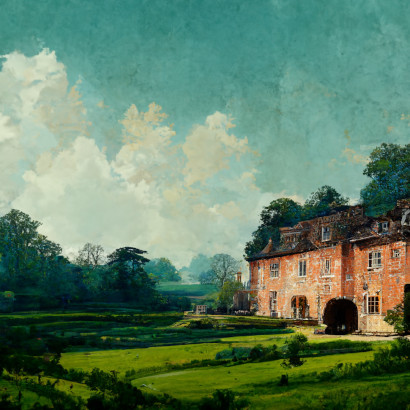
As to what motivated Helen to paint before this sudden commitment, the reader is only provided a few hints throughout the novel. The first occurs when she tells Gilbert that she “cannot afford to paint for [her] own amusement” (47). She provides a more explicit account in her diary, when formulating the plan for her escape, saying “[t]he palette and easel, my darling playmates once, must be my sober toil-fellows now” (352). In both of these statements Helen creates a clear dichotomy. Art is an “amusement,” a sort of play, or else it is work intended to produce revenue.
It is clear by the narration that art is merely a form of employment for Helen during her stay at Wildfell Hall. Gilbert’s farming is mentioned just as often and in the same sort of detached context. As is often the case in literature, the employment of the characters is ancillary rather than central to the plot. Being an artist doesn’t define Helen, just as being a gentleman farmer doesn’t define Gilbert, for whom “ambition urged…to higher aims” (11). For the characters with occupations in The Tenant of Wildfell Hall, none are so wrapped up in their work that it becomes an inextricable facet of their character, such as Mr. Casaubon of Middlemarch or Ahab of Moby Dick. For Brontë, it’s what one does with their leisure time, what one believes in, and how one behaves that defines a person. Gilbert isn’t a farmer, he’s a kind gentleman. Huntington isn’t landed gentry, he’s a drunkard and an immoral narcissist. Likewise, Helen isn’t a painter, she’s an involved mother and a pious Universalist.
Regarding Helen’s younger days of painting for “amusement,” one may wonder why this amusement didn’t continue throughout her days in Grassdale, especially during those lonely months when her husband left her without company. The best explanation is that she was never passionate about it in the first place. What Helen finds most stirring is to read literature and poetry. It can hardly be a coincidence that Helen persistently seeks refuge in a library. Both Gilbert and Walter use the common interest in the written word to get close to Helen. Gilbert is much more successful than Mr. Hargrave, as he genuinely shares Helen’s interest whereas Hargrave reads “the newspapers and periodicals of the day” (353) when he loses hope in attracting Helen.
The only hint the reader receives as to Helen’s original interest in painting is demonstrated when Helen’s uncle hosts the hunting party. Annabella is tasked with performing music for the company while Helen is to exhibit her paintings. Helen’s art, like Annabella’s music, is the activity of a young lady. While the use of oil paints may seem to require an extraordinary dedication on Helen’s part, this concern is easily dismissed once the extent of her uncle’s wealth is revealed in the final chapters. Her use of oil paints rather than a lady’s traditional water colors is clearly a plot device to allow her to profit from her paintings, as her use of oil is presented matter-of-factly without addressing the obvious unusualness of such a skill.
Furthermore, the appraisal Huntington gives their activities reflects his opinion of the woman rather than the art. Although Helen concedes Annabella has spectacular talent as a musician, her main concern is that Huntington gives her drawings more attention than Annabella’s music. Helen demonstrates this assumption of biased reasoning on Huntington’s part when he takes Annabella’s side in dispute with another lady at Staningley “though…she was obviously in the wrong” (44). Helen’s paintings and Annabella’s music are not things to be judged for themselves, these things are conduits by which judgment can be passed to the lady responsible for them. We likewise see Milicent going over her own sketches with Helen as well as Helen playing the piano. These drawing-room activities are never taken seriously by their practitioners or their audiences, and when they seem to be, it’s as if discussion of the art or music is a medium in which indelicate emotions can be acceptably communicated in a Victorian world. That Huntington lacks any true subtly in these exchanges is a foreboding indication of his deplorable character.
Of course, when Helen exhibits her paintings to the hunting guests is also the disastrous scene where Huntington discovers his own face sketched on the back of a painting, declaring that “the backs of young ladies’ drawings…are the most important and interesting part of the concern” (156). If at any point Helen uses art as a form of expression it’s in these early diary chapters. In sketching Huntington, Helen projects her romantic desire onto the canvas. This would seem to indicate that Helen has artistically engaged with her craft, albeit only in light sketches on the backs of her paintings. This obsession with sketching Huntington is actually the introduction to Helen’s diary, as reveries of Huntington preoccupy her mind to the point where she cannot perform any other function. She draws because she “can think and draw at the same time” (130). This statement indicates that Helen views the art as a way to pass the time rather than placing any true value in it. If she intended for her sketches of Huntington to function as a form of artistic expression then she wouldn’t have erased them afterward.
The other instance which may lead a reader to suspect that Helen actually considers herself an artist is when she locks herself in the library at Staningley to avoid Mr. Boarham. This is the only time when Helen expounds on one of her paintings. She even goes so far as to say she “intended it to be [her] masterpiece” (159). It’s difficult to take this statement seriously considering that, when she later decides to leave Huntington, she’s conscious that she isn’t “sufficiently skilful as an artist to obtain [her] livelihood” (352). Nonetheless, Helen goes into great detail describing the scene she paints, providing a page worth of details regarding the picture. What she fails to include in these details is any form of interpretation. When Huntington intrudes he’s quick to provide an interpretation that’s advantageous to his prospects with Helen. While Helen is quick to amend Huntington’s construal to one more favorable to her own desires, it’s clear that she’s improvising for the sake of courtship.
While the pedant may be tempted to argue one cannot escape the literal definition of an artist, or perhaps to argue from some obscure or subjectivist aesthetic theory, it’s important to ground Helen in the setting of the novel. Although a comprehensive survey of Victorian attitudes regarding art exceeds the scope of this paper, a few notable examples should work to advance the argument. In John Ruskin’s “A Definition of Greatness in Art,” he claims that neither sound technique or even the pleasure one derives from art define it as great. To Ruskin, great art is art that “embodies…the greatest number of the greatest ideas” (qtd. in Robson and Christ 1338). Considering that Helen’s art is devoid of any ideas, that it merely functions as an exercise in technique, be it for amusement or employment, can one really qualify it as art at all?
Walter Pater provides a competing definition that also excludes Helen’s work. He cites “passion…that yields…fruit of a quickened, multiplied consciousness” (qtd. in Robson and Christ 1545) as the driving force of art. “Art for its own sake” (qtd. in Robson and Christ), is Pater’s main concern, and unfortunately Helen’s paintings always serve some function in The Tenant of Wildfell Hall. Never does she stand before her easel with the intention to undergo an act of artistic expression. It’s always indicative of something else, whether it be a practical function such as fulfilling her role as a young lady or a symbolic one for the sake of the narrative. Despite Gilbert’s admiration for its craftsmanship, as Pater and Ruskin both agree, there is much more to being art than craftsmanship.
Works Cited
“Artist.” The Oxford English Dictionary. 3rd ed., 2010.
Brontë, Anne. The Tenant of Wildfell Hall. Penguin Books, 1996, NY, NY.
Robson, Catherine, and Carol T. Christ, editors. The Norton Anthology of English Literature, The Victorian Age. W. W. Norton & Company, 2012, NY, NY.

